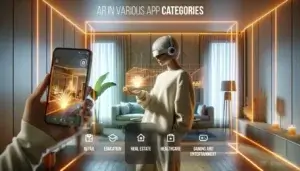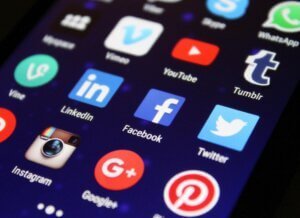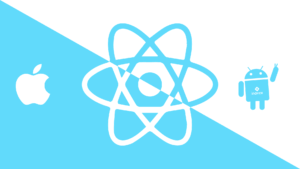Do you have a burning ambition to enter the world of Mobile App Development and create the next iconic mobile application? If so, this guide will give you the tools and insight to inform your journey as a budding app developer.
From essential tips on sharpening your coding prowess to helpful advice on launching your first successful app, these indispensable strategies are sure to set you up for long-term success in the ever-evolving digital landscape. So if you’re eager to know ‘what does it take to become an innovative mobile application developer? Let’s get started.
What Is Mobile App Development And What Do Mobile App Developers Do?
Mobile App Development is creating software applications for mobile devices such as smartphones and tablets. Mobile app developers are responsible for designing, building, testing, and maintaining apps for their clients. They need to consider the design, user experience, and underlying code to ensure that the product functions properly.
Mobile app developers must possess a comprehensive understanding of programming languages such as Java and C++ and frameworks such as React Native or Flutter. They should also know cloud computing technologies like Amazon Web Services or Google Cloud Platform to build scalable and reliable apps.
In addition, they must be familiar with modern mobile development tools such as Firebase and Fabric.Moreover, mobile app developers need to be knowledgeable about security protocols to protect users’ data from hackers or malicious activities. They also need to understand user analytics to track usage patterns and enhance user engagement by providing content tailored to their interests.
Additionally, they must have a good grasp of Quality Assurance (QA) testing methods to ensure that the apps function correctly across different devices and platforms.

In addition to coding expertise, successful mobile app developers also require strong problem-solving skills to tackle complex challenges posed by developing an application from scratch.
Moreover, they should possess excellent communication abilities to accurately convey ideas or instructions to their teams or clients during each stage of Mobile App Development. Lastly, since most apps today involve integrating with existing services like payment processors or social media networks, having extensive domain knowledge related to these areas is helpful too.
The Different Types Of Mobile Apps That Can Be Created
Mobile applications have grown exponentially in popularity over the past decade, as they offer businesses and users alike numerous unique advantages. The range of possible mobile apps that can be created is nearly limitless, but some of the most common categories include gaming, education, messaging, and social networking. Mobile apps have also revolutionized shopping experiences by providing real-time access to thousands of shops worldwide.
Additionally, developers create various valuable apps for everything from exercise tracking to language learning for people who wish to use their smartphones for activities beyond entertainment. Whatever the concept, mobile app development has enabled new modes of expression and communication and unlocked value from the most straightforward ideas.
Let’s look at the seven primary and different types of mobile apps.
Gaming Apps:
These apps provide hours of entertainment and allow users to indulge their competitive spirit. Some popular gaming apps include Candy Crush Saga, Clash of Clans, Angry Birds, and Pokémon GO.
These games have become household names due to their immersive and engaging gameplay that appeals to all ages.
Social Media Apps:
Social media apps allow users to stay connected with friends and family where ever they may be. Popular social media apps like Facebook, Twitter, Snapchat, Instagram, and WhatsApp allow people to share photos, videos, messages, statuses, and more with other users.
Messaging Apps:
Messaging apps provide an easy way for people to interact with each other on the go. Popular messaging apps include WeChat, Telegram, iMessage, Skype, and Viber as they offer secure communication over text message or video call any time of day or night.
Educational Apps:
These are great for students who want to stay ahead of the curve in their studies or professionals who need a refresher course on specific topics. Educational apps can offer lessons on subjects such as Maths, English Language, History, Geography, Science, and much more. They come with interactive tutorials and quizzes that help reinforce learning.
Productivity Apps:
Productivity apps give people powerful tools to help them manage their time or quickly complete tasks. Popular productivity apps include Evernote, Todoist, Trello, Asana, Google Drive, and Dropbox, as well as calendar applications like Google Calendar.
They can be used for note-taking, scheduling meetings or events, tracking projects or tasks, and much more.
Shopping Apps:
Shopping apps provide an easy way for people to purchase goods online conveniently from their mobile devices. This app offers customers access to various products from various vendors, from which they can compare prices before making a purchase decision.
Popular shopping apps include Amazon, eBay, Walmart, and AliExpress, among many others.
Music & Video Streaming Apps :
Music & video streaming services are trendy amongst today’s tech-savvy consumers who want access to music & movies anytime, anywhere, without having any physical copies stored in their homes.
Popular streaming services such as Spotify, Pandora, Apple Music, Netflix, Hulu, YouTube, etc., provide users access to millions of songs & videos from around the world straight from their phones.

How To Create Idea For A Mobile App
One of the best ways to develop an idea for a mobile app is to identify a dilemma or need in the marketplace and create a solution. To start, begin by researching what potential users might need or want. For example, look at user reviews on similar apps, survey people in the target demographic, or talk to industry experts.
Once you’ve identified a gap in the market, you can start brainstorming ideas and working out which would be most practical and profitable. Next, develop your concept further by researching existing solutions related to it and determining how yours would be different and better. Consider user experience, pricing strategy, monetization methods, and promotional channels.
Next, outline the features that will be included in your app – think about design elements relevant to your concept and if anything unique could make your app stand out from others.
Finally, create a prototype of your app. This is important as it allows you to test whether your concept works in practice by enabling users to interact with its features with accurate data. The feedback from this can help guide further development efforts – refining features or even leading you towards developing additional features that had not been considered before.
Doing this also helps you create marketing materials needed to promote the app when it’s ready for launch. After completing this step, review any legal requirements specific to mobile applications, such as copywriting protection or GDPR compliance, before submitting your product for review on App stores like Google Play Store or Apple’s App Store.
How To Design And Prototype Your Mobile App Idea
Designing and prototyping a mobile app idea is a creative process that requires research, creative problem-solving, and an eye for detail. To begin the process of designing and prototyping your app idea,
It’s essential to take the time to thoroughly research the target audience, similar apps in the marketplace, industry standards, and other relevant information. This will allow you to determine what features are essential for your app to provide a great user experience and stand out from the competition.
Once you gather all this information, it’s time to get creative. Sketch various wireframes or designs on paper or use online tools like Figma or Adobe XD to create low-fidelity mockups. Consider how users interact with the app and try different design options before settling on one solution.
Think about how each design decision impacts the user experience, including navigation flow, aesthetics, typography, layouts, and interactions- these can be adjusted as needed. The next step is creating your app’s prototype so users can test it before launching. You can use tools like ProtoPie or Marvel (which has a free version) to quickly create prototypes that simulate real user interaction with your mobile app.
It’s best practice to create separate prototypes for each feature so that you can quickly go back and make changes if needed – but also know when something works well since there’s no need to change it! It’s also important to remember about incorporating analytics into your mobile app prototype: services such as Firebase Analytics can be integrated into existing prototypes to track user behavior within your product to improve their experience continuously.
It’s also essential to consider accessibility features such as font size adjustability or color scheme settings so that people having disabilities can access and use your product too
Finally, remember coding. Once you have settled on a design concept and built out a working prototype for testing purposes, it’s time for developers (or yourself) to dive in and build out the actual code behind your creation using languages such as JavaScript/React Native/Angular/Flutter, etc.
Depending on the project’s complexity, this could be either a fast or lengthy process – but it should always be done with precision and accuracy for your product to reach its full potential once released.
How To Market Your Mobile App Once It’s Released
Once your mobile app is released, it’s time to start marketing it and getting the word out through as many channels as possible. The first step should be to create a website for your app that will act as an online landing page for potential users. This website should include an overview of the app’s features and benefits, screenshots, videos, and customer testimonials.
Additionally, include a blog or press page that gives updates about Mobile App Development.
The second step is to optimize your website for search engine optimization (SEO). This means including keywords in meta tags and titles and on-page content relevant to your target audience. It would help if you also linked to other websites and social media profiles related to the app.
Once a website is set up, you can start advertising your mobile app using traditional methods such as TV commercials or radio spots. You can also use digital ads like PPC campaigns or display ads on websites related to your product’s target market.
Additionally, consider setting up a referral program where existing users receive rewards for recommending the app to their friends and family. Social media is another excellent tool to help you reach more people with your mobile application. Posting regular content such as tutorials or stories from customers using the app successfully will help build brand awareness and generate more interest.
Additionally, running promotional campaigns like contests or giveaways can be beneficial in attracting downloads and building loyalty amongst existing users. Finally, remember influencer marketing which has become increasingly popular over recent years due to getting endorsements from celebrities or industry experts through their social media accounts.
Influencers are often willing to endorse brands in exchange for compensation, so make sure you come prepared with an attractive offer if this route interests you.
Resources For Beginner Mobile App Developers
As a beginner-level mobile app developer, numerous helpful resources are at your disposal. Whether you are looking for instructional tutorials, Mobile App Development libraries, frameworks, user testing services, coding challenges, or videos and podcasts to stay up to date on the industry’s latest trends – it can all be found quickly and easily.

Utilizing Mobile App Development resources allows new developers to gain the understanding and experience necessary to develop robust applications with efficiency. With such vast amounts of information at their fingertips, beginners can now become mobile app pros in no time.
Here are some critical Mobile App Development resources for beginner mobile app developers.
1. Mobile App Development Tutorials:
Tutorials are the most common resources for beginner mobile app developers. They can provide in-depth overviews of developing an app, from laying out the UI to back-end programming.
Tutorials often provide step-by-step instructions, visual diagrams, and examples to help with learning. These tutorials can be found online.
2. Mobile App Development Books:
Books are an excellent resource for novice mobile app developers, providing a comprehensive look at Mobile App Development for different platforms. The topics covered range from selecting the right platform for development to understanding the nuances of programming languages such as Java or Swift. Popular titles include Head First Android Development by Dawn Griffiths and Beginning iOS Programming For Dummies by Neal Goldstein.
Additionally, blogs from experienced developers can also be helpful in this regard.
3. Developer Communities:
Connecting with fellow app developers is highly beneficial for beginners looking to learn more about mobile app development. Participating in forums or joining Mobile App Development groups on social media sites such as Facebook or Reddit gives you access to experts who have extensive experience in their field and will be able to offer advice on various topics related to Mobile App Development.
Additionally, there are plenty of conferences where you can get together with other developers and discuss best practices, network, and collaborate.
4.Online Courses:
For those who prefer a more structured approach to learning Mobile App Development basics, many online courses are available that cover all aspects of creating apps, from design to coding and testing in depth.
Such Mobile App Development courses usually come with video lectures and hands-on assignments that allow students to practice what they have learned while building projects that showcase their skills. Some popular Mobile App Development platforms include Lynda, edX, Udacity, and Codecademy Pro Intensive courses.
5.Developer Tools & Software:
A wide range of tools is available that makes it easier for beginner mobile app developers to build high-quality apps without spending excessive time on coding or debugging issues. Popular software tools include Adobe Photoshop for designing user interfaces; Xcode or Android Studio for writing code; Firebase for real-time databases;
Fabric or Crashlytics for analyzing usage data; Flutter/React Native/Ionic/Cordova frameworks for cross-platform development; and Appcelerator/TestFlight/Kobiton/Appium for testing apps across multiple devices before they go live in the stores.








